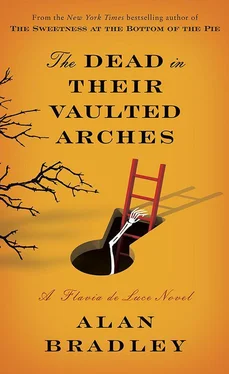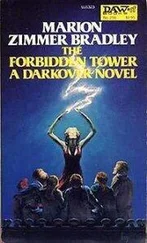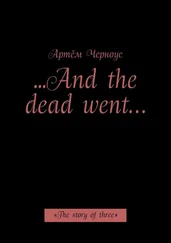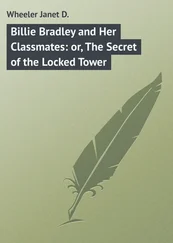And then someone in the church—could it have been me?—let out a little cry.
The spell was broken.
Lena was in motion again—a bolt of lightning in a black jacket. In no more than a few strides, she had crossed the chapel. She sprang onto the small altar and, summoning all her strength, hurled herself at the stained-glass window.
Samson and Delilah vanished in a shower of ancient glass. Shards and splinters of acid yellow and cobalt blue hung in the air, suspended in time before crashing down onto the marble in a wave that was somehow like the sea.
A sea of glass.
Lena had not gone fully through the window.
It would have been better for her if she had.
Those ancient craftsmen of the Middle Ages, working to the west of Buckshaw in Ovenhouse Wood, had mixed sand with the ashes of a reed called glasswort to make a window which would endure until the Last Trump: until that day when the door to Heaven would be opened, and the rainbow throne with its seven lamps of fire would be seen sitting in a sea of glass.
To be certain of this, they had suspended their handiwork in a matrix of tracery: thin metal filaments to form a spider’s web of lead.
And it was this metallic net in which Lena had embedded herself, half in and half out of the window.
She must have severed an artery as she struggled, impaled on a thousand colored needles of glass, unable to move.
At first her blood oozed, then became trickles and rivulets, each finding a fresh pathway through the broken shards, their streams joining finally in a river of red which dripped horribly onto the cold marble floor.
It was all over in a remarkably short time.
There was pandemonium in the church. Someone was screaming and Dr. Darby was making haste from the back of the nave.
I found myself at the crossing, drawn as if in a dream past the pulpit and the lectern and into the little chapel. Inspector Hewitt tried to hold me back, but I shook him off—perhaps a little too roughly—and walked resolutely on until I was standing in front of the glass-littered altar, gazing up at the wreckage.
Lena had ceased to move.
Except for a few loose red hairs at the back of her neck, which stirred uneasily in the little breeze coming in round the broken glass, she hung impaled in perfect stillness.
And then—
I wish I didn’t have to write this, but I must.
One of her eyes opened, turned slowly in its socket as if it didn’t know where it was—and came finally to rest on me.
It widened.
That blue, unfathomable eye. Staring.
Before fading finally …
That blue de Luce eye.
So much like my own.
TWENTY-NINE
I HAVE SOMETIMES WONDERED what Lena was thinking as she died.
I wonder if she had time to suspect, as she saw me standing there staring up at her, that Harriet had come back from the dead for vengeance.
I hope in a way that she had, and in another way, I hope she hadn’t. I’m trying hard to be a better person, but it doesn’t always work.
I am finding, for instance, that I’m having a great deal of trouble forgiving Harriet for being dead. Even though it was not her fault, and even though she died for her country, I feel deprived, and deprived in a way that I never felt before her body was found. Daffy was right: We deserved better.
It makes no sense, I know, but there it is. The best I can do is to allow myself to hate her for a while. Well, perhaps not hate, precisely, but to be highly cheesed off with her, as Undine would put it.
And Lena, of course. I deserved better from both of them.
The drive back to Buckshaw was made in utter silence. There had been no lingering in the churchyard to receive condolences as there sometimes is. Because of Lena, and so forth, we had been quickly bundled into the Rolls by Cynthia and the vicar with gripped hands under cover of surplices and furtive pats on the shoulder.
Since most of the congregation were still jockeying for a better view of Lena’s removal—some of them in the churchyard, even though one of the verger’s tarpaulins had been hastily rigged to cover the window and its captive—we had no real difficulty in making our getaway unnoticed.
As Dogger pulled away from the lych-gate, we passed within a few feet of Inspector Hewitt, who was questioning Max Brock, his notebook at the ready. Max, since retiring from the concert stage, was rumored to have taken up writing “true confession” tales for some of the more lurid magazines, and I’ll bet he had gathered plenty of usable detail from the front pew where he had been seated.
The Inspector didn’t give me so much as a passing glance.
It was decided that Undine would ride back to Buckshaw with Adam and Tristram in her mother’s Land Rover. Aunt Felicity had protested, but Father put his foot down. It was the first time he had spoken all day.
“Let the girl go, Felicity,” he said.
I had no idea how much the child had witnessed, and because Dogger had whisked her off so quickly into the vestry at the very outset of the excitement, there’d been no opportunity for me to find out.
We arrived home to a silent house. Father had given Mrs. Mullet the rest of the day off, and she’d required no persuasion.
“I’ve left meats enough in the ’fridgerator,” she whispered to Dogger. “Puddings and that in the pantry. Make sure they eat.”
Dogger had nodded delicately.
Adam and Tristram pulled up at the front door just seconds behind us with Undine, all three of them engaged in a serious discussion, apparently about dragonflies.
“There are far more species in Singapore than in England,” she was telling them, “well over a hundred—but of course I’m including the damselflies.”
Did she know yet about her mother? Surely she must—Aunt Felicity must have told her.
It was going to be difficult for the little girl, growing up without her precious Ibu. Who knows? In time, she might even come to appreciate a few pointers.
Our party broke up in the foyer, each of us going our separate way. Father was the first to leave, climbing slowly up the stairs. I wanted to follow him—to console him—but to be perfectly honest, I didn’t know how.
Perhaps in time I shall learn the antidote for grief. But for now, I would just have to make do with silent pity.
Since I had no interest in damselflies, nor was I hungry, I went directly to my laboratory to feed Esmeralda, who appeared not to have missed me. She fell upon her feed as if I didn’t exist.
It seemed an eternity since I had last been alone with myself.
For the first time in my life, I didn’t know what to do. I didn’t want to read, I didn’t feel like listening to music, and chemistry was out of the question.
I took a wooden match from a box and idly lit the flame of the Bunsen burner. With my elbows on the bench, I stared into the changing flame—yellow, orange, purple, blue—as if, from a great distance, from the outer edge of the universe, I was an onlooker to the birth of galaxies.
There was only me, and nothing more. Nothing else existed.
Light and heat: That was what it was all about.
The secret of the stars.
But when you came right down to it, light was energy, and so was heat.
So energy, when you stopped to think about it, was the Grand Panjandrum: the be-all and the end-all, the root of all things.
The flame flickered, as if taunting me. I warmed my hands for a moment and then switched off the gas.
Poof! The end of Creation.
Extinguished by an almost-twelve-year-old girl in pigtails.
Just like that.
It was not much consolation, but it was all that I was likely to get.
I had not heard the door open, nor had I heard Dogger come into the room. I can only suppose he didn’t want to startle me.
Читать дальше












